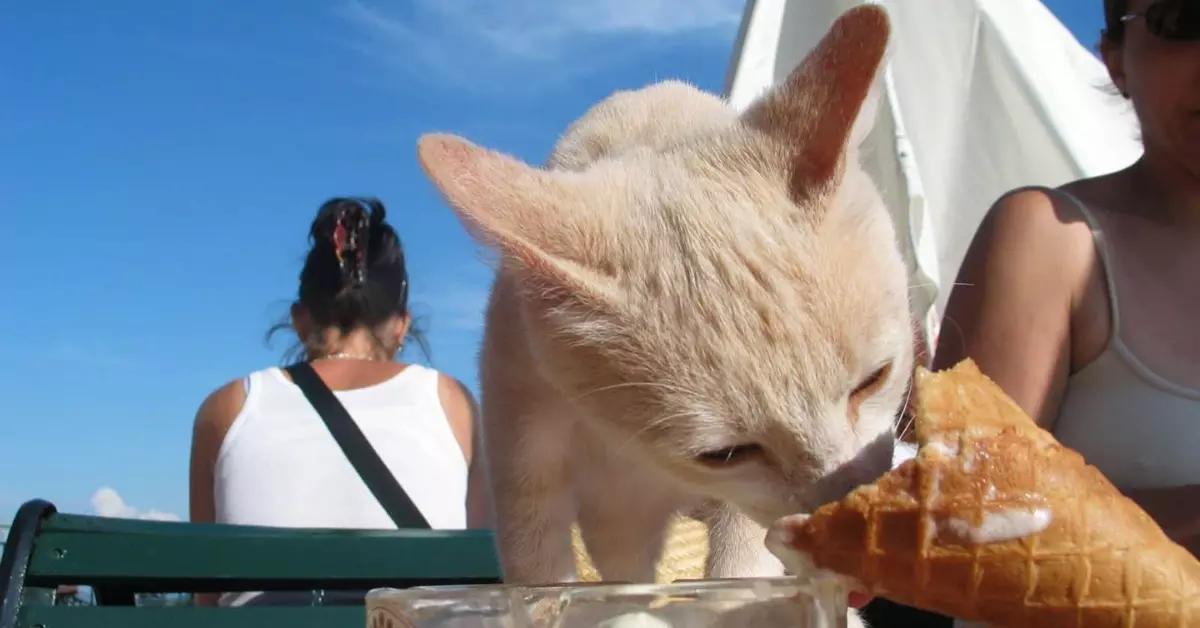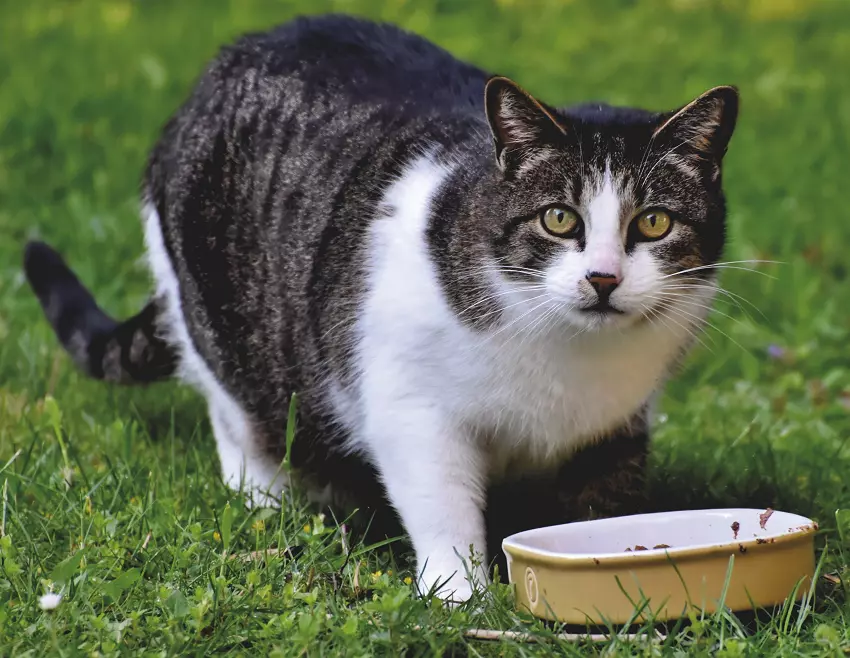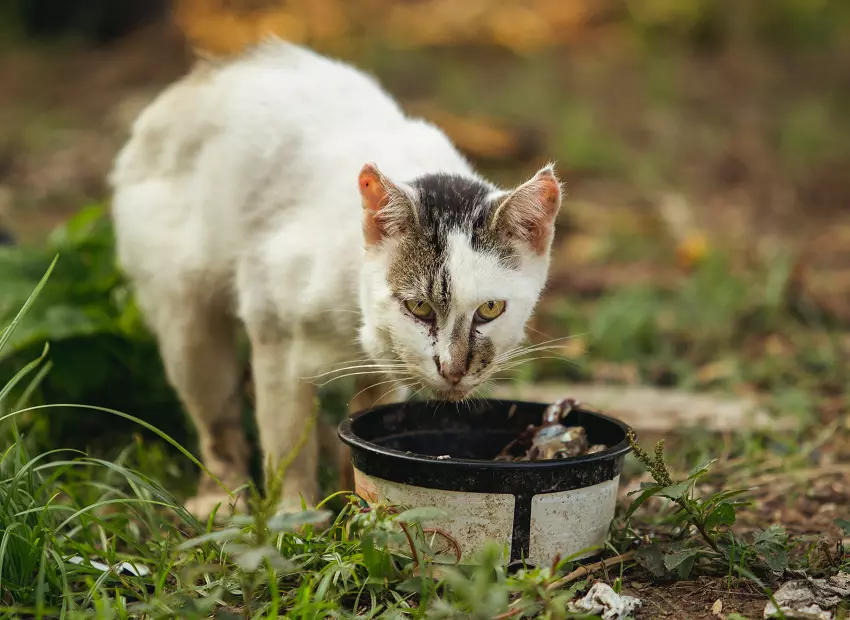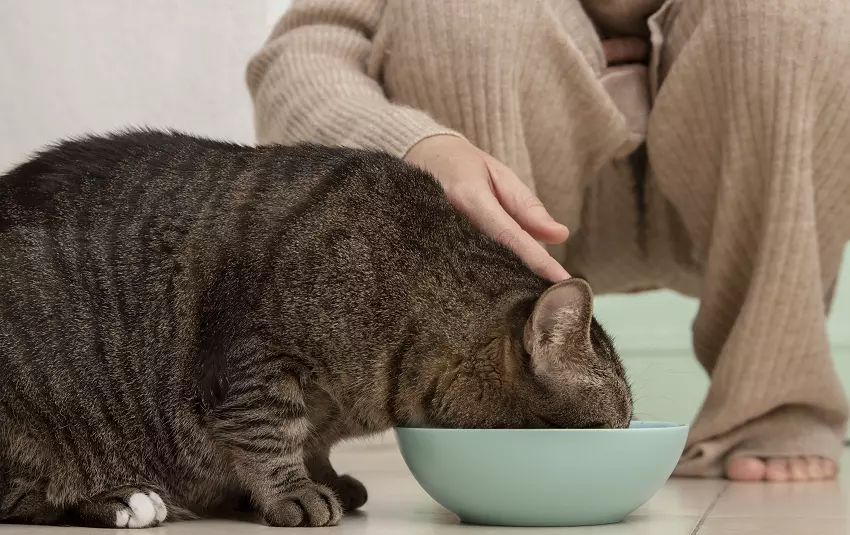How Long Can A Cat Go Without Eating?
How long can a cat go without eating? Unlike feral cats, domesticated felines can’t go without food for long. It should be a cause of concern if your pet doesn’t eat for about 24 to 36 hours.
This should prompt you to bring the cat to the vet for immediate examination. Since cats have the ability to hide physical illness, a vet examination may reveal a lot.

Death due to starvation may happen in one to two weeks, but it depends on your cat’s health, age, surroundings, and other factors.
How Long Can A Cat Go Without Eating?

Average cats can survive without food for about one week. Hardy ones can live through the second week without food as long as there’s a source of clean water. However, if your pet has an underlying condition or is already old, they may easily succumb to death if deprived of food.
Aside from old cats, kittens also can’t withstand starvation. Their small bodies don’t have enough stored energy, which makes them susceptible to hypoglycemia if not fed for a day.
In general, it’s not safe for cats not to eat within 24 hours. Lack of food will cause weakness as an immediate effect. After a few days, weight loss and further health degradation will ensue.
Take note that if not eating is accompanied by not drinking, your cat may die quickly. Cats with no source of clean water will die in just 3 to 4 days. Even large felines will die if they didn’t get to drink in 3 days.
Cats can tolerate the lack of food longer than the lack of water. A few days of not drinking will cause the kidney to fail, which will branch out to other complications. In this case, death is imminent.
Why Is My Cat Not Eating?
There are many possible reasons why your cat isn’t touching its food. The following can be the culprits:

-
Extreme stress or fear
Is your cat not eating and hiding? There may be a stressor that’s causing them to seek refuge in a cramped space.
In the wild, cats will do this to avoid a predator, which might be the case with your kitty. If your cat retreats under the bed, you can try sliding the food and water bowl underneath and see if the cat will eat.
-
Just being picky
Some cats are just extremely finicky with their food. If your cat is not eating much but acting normal, it’s probably time to switch to a new food choice.
Cats usually take time to adjust to a new food, so see to it that you do the transition slowly.
-
Vaccinations
Cats that have been vaccinated recently will exhibit a poor appetite for a few days. Loss of appetite is a side effect of vaccines, which may manifest to some felines.
You should consult the vet if your cat won’t eat after receiving shots.
-
Illnesses
Is your old cat not eating? The most common cause of poor appetite among old kitties is health problems. It could be Kidney problems, dental problems, or even cancer.
It’s best to bring your cat to the vet for proper diagnosis and treatment.
-
Gastrointestinal Obstruction
If cats swallow something they shouldn’t, it may get lodged in their stomach or intestine. GI construction or gastrointestinal obstruction is referred to when a foreign body gets stuck in the cat’s GI tract.
This closes the passageway for food and the cat may vomit or stop eating. Usually, vomit removes the obstruction but in severe cases, your cat may need surgery to remove the blockage.
-
Motion sickness
If your cat refuses to eat after a car ride, it’s possible that your pet is experiencing motion sickness. Still, this should go away in a few hours. Motion sickness may cause nausea, drooling and not eating, and lethargy.
Some cats will even have accidents in the car due to stress. Loud crying is also noticeable.
What Will Happen If My Cat Doesn’t Eat?
Refusal to eat may lead to starvation in just a few days. The rapid weight loss will take its toll on the kidney, which will collapse later on. Aside from that, the liver will be overwhelmed by the sudden increase in fat as the body tries to use whatever energy is left in your pet’s body.
This may lead to hepatic lipidosis, which can result in liver failure if not addressed right away. Take note that this condition can take place within one to two weeks. Among weaker cats, the complications will manifest in a few days.
What To Do If My Cat Is Not Eating?
If your cat hasn’t eaten in 24 hours, you can do the following to prevent any lethal complications:

-
Try a new flavor
If your pet refuses to touch its food, you can purchase a new flavor. You can also prepare a homemade meal and see if the cat will eat.
Make sure that the new food has a different texture, smell, and taste than the one your pet refuses to consume.
Another trick you can use is to rotate two or three different cat food products within a year. This will prevent your cat from getting tired of the taste and texture of its food.
-
Make it moist
If your cat is eating its dry food, try adding a low-sodium broth to it. Make sure that the broth is warm, but not hot. This will encourage a cat to eat at least a small amount of food.
If you don’t have both, you can add warm water to your cat’s kibble to mix it into a pate.
-
Add some appetite stimulants
Canned tuna and chicken liver are some of the tastiest appetite stimulants you can add to your cat’s food. Still, you should only give this food in small amounts as too much will be bad for your cat’s health.
-
Always keep fresh water available
If your cat doesn’t really want to eat anything, make sure that there’s a continuous supply of clean water.
As long as your cat is drinking, you can buy a day or two to figure out what’s wrong. Also, see if the cat will consume the food.
-
Call the vet
However, if your cat is still not eating after 24 hours, it’s best to call the vet right away. Refusal to eat, followed by sudden lethargy, drooling, or change in behavior should be considered an emergency. You should take your cat to the vet as soon as you can.
Refusal to eat for more than 24 hours can lead to fatal consequences. This is very critical if your cat has health problems, which can affect its tolerance to food deprivation.
Upon arrival in the vet clinic, your cat will likely be put on an IV drip to replenish its lost nutrients while the veterinarian conducts further examination.
Conclusion
How long can a cat go without eating? It could be anywhere from two days to two weeks.
The significant reasons could be stress, illness, motion sickness, gastrointestinal obstruction, or any other illness.
However, a cat may stop eating due to issues related to food like flavor, texture, or shape.
Regardless of how hardy your pet is, you should always seek immediate medical attention if the refusal to eat persists after 24 hours.
The smaller your cat is, the quicker you should act.
We hope the information from this article will help you take good care of your cat.
Thank you for reading!
